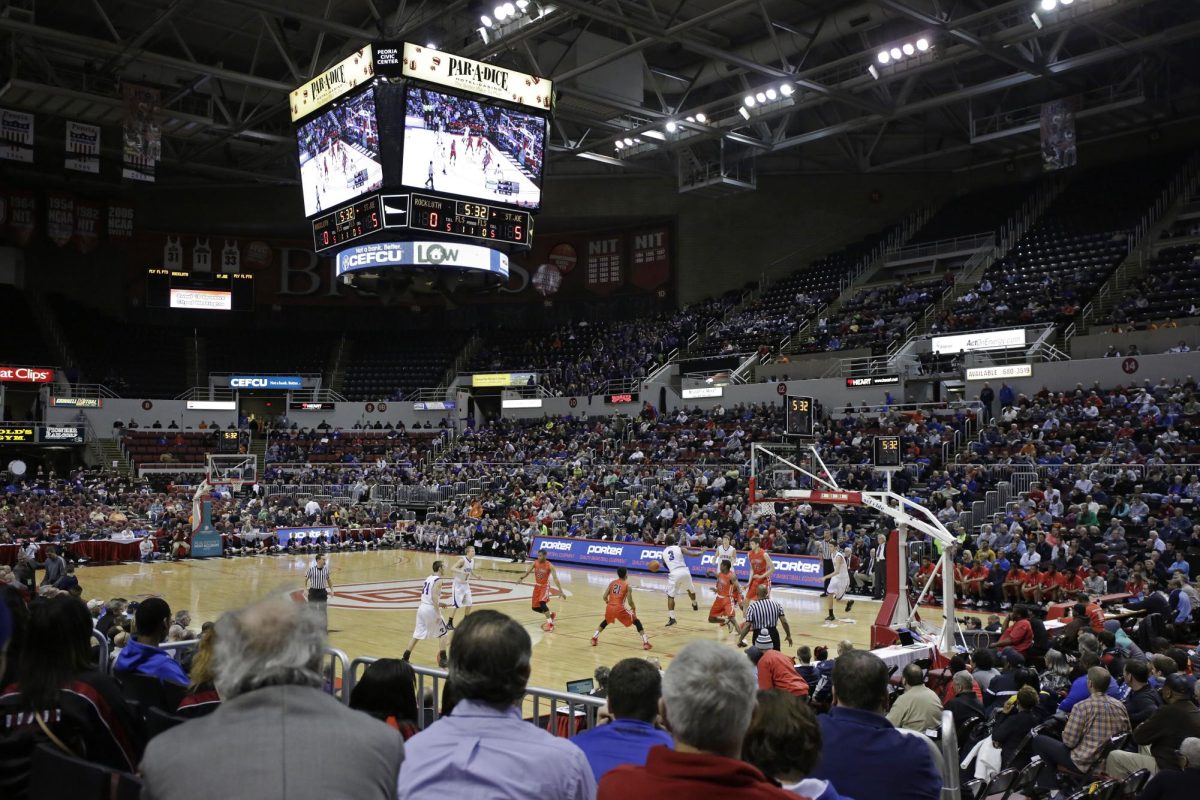Picture yourself either as a coach or player on a public high school sports team that has always struggled but suddenly has a great year and makes a run at state. Despite your school’s dominance before arriving to state, your team then proceeds to lose badly to a private high school that is known for its sports dominance.
It is clear that for certain sports there needs to be separate public and private school state series for IHSA sports due to the unfair advantages private high schools have when “recruiting players.”
Obviously, private high schools cannot recruit players like colleges can, but they do have certain advantages over public high schools when it comes to the players on their teams.
According to Journal Star, “In Illinois, private or non-boundary schools can procure students who live within a 30-mile radius of the school’s location, giving programs in dense population centers like Chicago, St. Louis Metro, Peoria, Rockford and Springfield a large student pool from which to draw.”
Unlike private or non-boundary schools, public schools are restricted only to students who live within their school boundary lines. This ultimately gives non-boundary schools an advantage in being able to field the best athletes possible within their 30 mile radius and leads to unfair advantages public schools do not receive.
The first reason why the IHSA should have a separate state series for public and private schools is because private high schools can “unofficially” recruit sports players by offering them deducted tuition rates and in some cases full ride scholarships to play sports.
These offers that non-boundary schools can give students are often very enticing and serve as another form of recruiting players, which public schools are unable to do unless that athlete lives within their boundaries. These offers often leave private schools with very talented and successful sports rosters, and ultimately give them a better advantage at state when having to face public schools.
The IHSA should have a separate state series for public and private schools because certain private high schools dominate at state against public schools, with the best examples being teams in Boys Football and 3A boys basketball.
According to USA Today High School Sports, Private schools outscored public schools 283-76. There are eight classifications for IHSA Football, and the only state championship game not featuring a private school was in class 6A. In class 1A, 2A, 3A, 4A, 5A and 8A, all state championship games featured a private school winning by 20 or more points over a public school (In other words a blowout). The only class without a private school state champion was 6A.
This dominance needs to be addressed by the IHSA, as these games are no longer competitive and it’s clear the advantage private schools have over public schools.
Finally, the IHSA should have a separate state series for public and private schools because a separate state series would allow for state championship games to be more competitive since public and private schools would not have an upper hand when facing each other.
For example, having public schools only play each other in a state series would allow for less blowout games and more competitive ones as neither of the schools are able to recruit players. The same goes for private schools. Since these schools are able to recruit players, there wouldn’t be unfair advantages during state championship games.
While some people may argue that the 1.65 multiplier added to student enrollment at non-boundary schools levels the playing field between public and private schools at IHSA state, this claim is incorrect. Private schools have still been dominant at a majority of IHSA sports the past few years.
Looking at the recent dominance of Illinois private high schools at IHSA state over public schools, it is clear private schools have an advantage over public schools due to their ability to recruit players. This is something the IHSA needs to address regarding its state series, if they want these games to be more competitive among their member schools.




